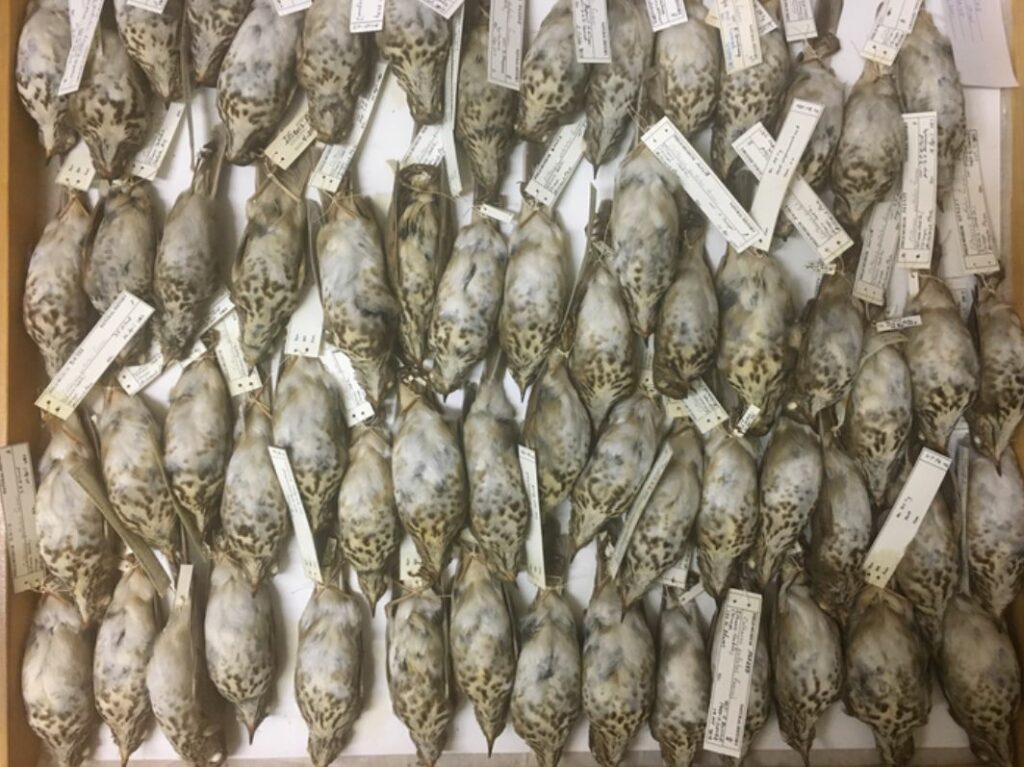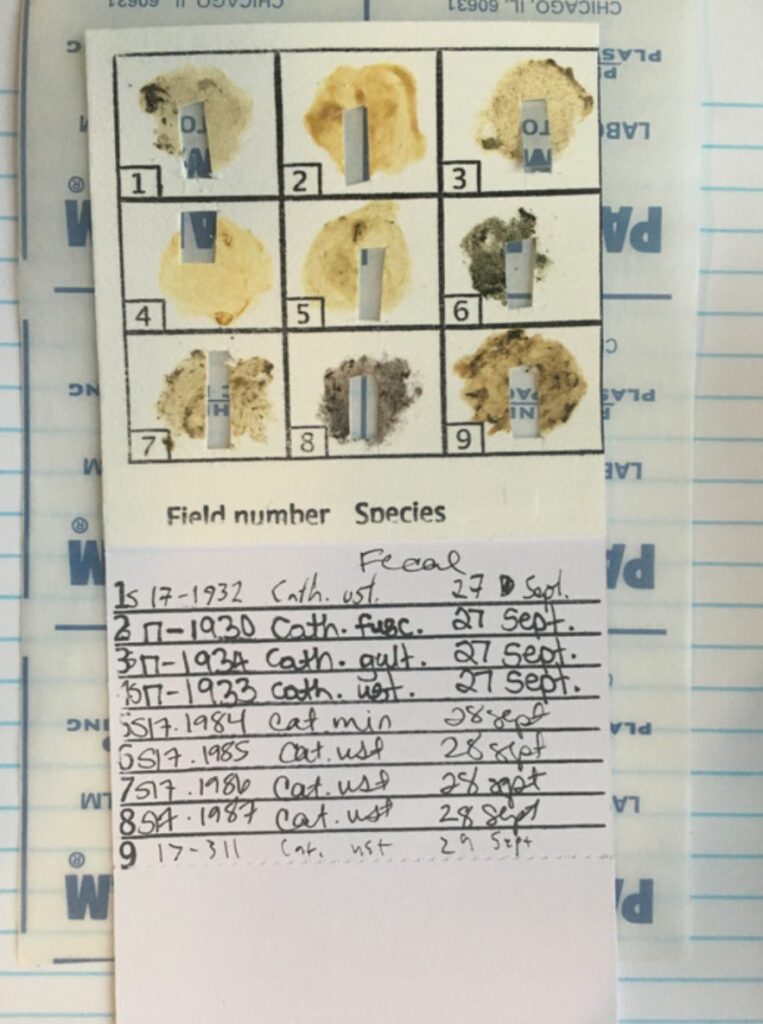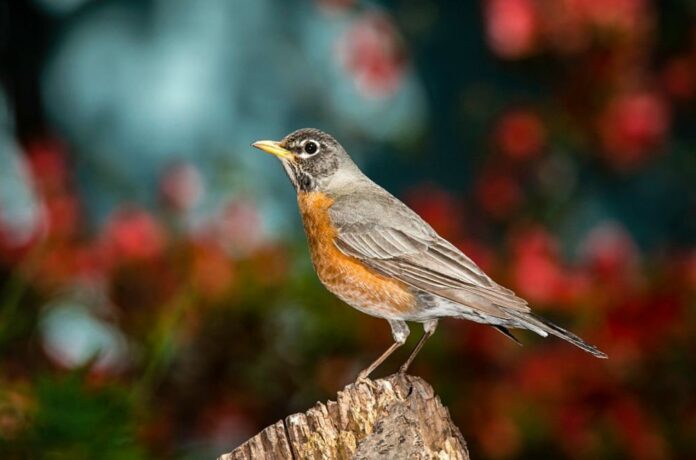Birds that collide with windows during migration leave behind an unexpected gift: their poop, which can reveal their microbiomes.
Window collisions result in millions of bird deaths annually in urban areas, leading scientists and volunteers to collect the deceased birds to study and rehabilitate the injured ones. The bodies of these birds offer valuable scientific insights, particularly when examined over multiple years.
A recent study published in the journal Molecular Ecology utilized DNA sequencing and bird droppings to investigate the complex relationship between birds and the microbes residing in their digestive systems, which differs significantly from the microbiomes of mammals.
“In humans, the gut microbiome—the collection of bacteria, fungi, and other microbes living in our digestive tracts—is incredibly important to our general health and can even influence our behavior,” explains Heather Skeen, a research associate at the Field Museum who completed her PhD through the Field and the University of Chicago.
“But scientists are still trying to figure out how significant a role the microbiome has with birds.”
Research has revealed that various mammalian species possess a unique set of gut microbes that aid in digestion and offer protection against illnesses. DNA analyses have demonstrated that these associations may have persisted for millions of years, as different mammals co-evolved alongside their microbiomes in a mutually beneficial symbiosis. However, scientists like Skeen have discovered that avian microbiomes appear to function differently, suggesting that distinct regulations govern the microbiomes of birds.

“Bird gut microbiomes don’t seem to be as closely tied to host species, so we want to know what does influence them,” adds Skeen. “The goal of this study was to see if bird microbiomes are consistent, or if they change over short time periods.”
To obtain a sizable sample size, Skeen concentrated on four prevalent thrush species among the numerous birds that arrive at the Field Museum following collisions with Chicago’s buildings. The researcher extracted the intestinal contents of these thrushes directly to analyze their gut microbiomes.
This involved making a small incision into the abdomen and squeezing out the contents. Over three years, Skeen collected samples from 747 birds, including those from Michigan, Minnesota, and Manitoba, where the thrushes breed during the summer. The bird droppings were transferred onto specialized filter paper cards that preserve DNA and sent for bacteria classification analysis.
“Analyzing the bacterial DNA present in the poop allowed us to determine exactly what kinds of bacteria were present,” adds Skeen. “It turns out, there were about 27,000 different types of bacteria present.”
Skeen and her team analyzed the bacterial makeup across the sample of 747 birds to identify any patterns. In contrast to mammals, they did not find a unique microbial profile for each bird species. Rather, the most apparent association between the birds and their microbiomes was chronological. The gut microbes of the birds altered from season to season and year to year, as evidenced by significant variations in bacterial composition over time.

Skeen notes that these results were unexpected and suggests that the microbiomes of birds are likely more influenced by their surroundings than by an innate and stable relationship, as seen in most mammals.
“Heather’s research is blowing people’s minds about what a microbiome is or isn’t,” remarks Shannon Hackett, associate curator of birds at the Field and a co-author of the paper. “How do birds have functioning immune systems, if their microbiomes change so much in just a few months? It’s hard to weave that into a consistent theory about how they digest food, how they reject parasites, all the things we think of the microbiome doing in humans. How does that work?”
According to Hackett, the research also highlights the significance of museum collections. Dave Willard, a co-author of the study and the Field collections manager emeritus, started collecting birds that had died from collisions with buildings in Chicago about forty years ago.
“At the time, people were like, ‘What the hell are you doing?’ But the fact that he’s been doing this for forty years means we have a unique opportunity to study birds across fairly short periods of time. We have more than 100,000 window-killed birds at this point, it’s an incredibly rich resource,” adds Hackett. “And as technology evolves and new scientists like Heather come up, we broaden what we’re able to do with these resources.”
Image Credit: Getty
